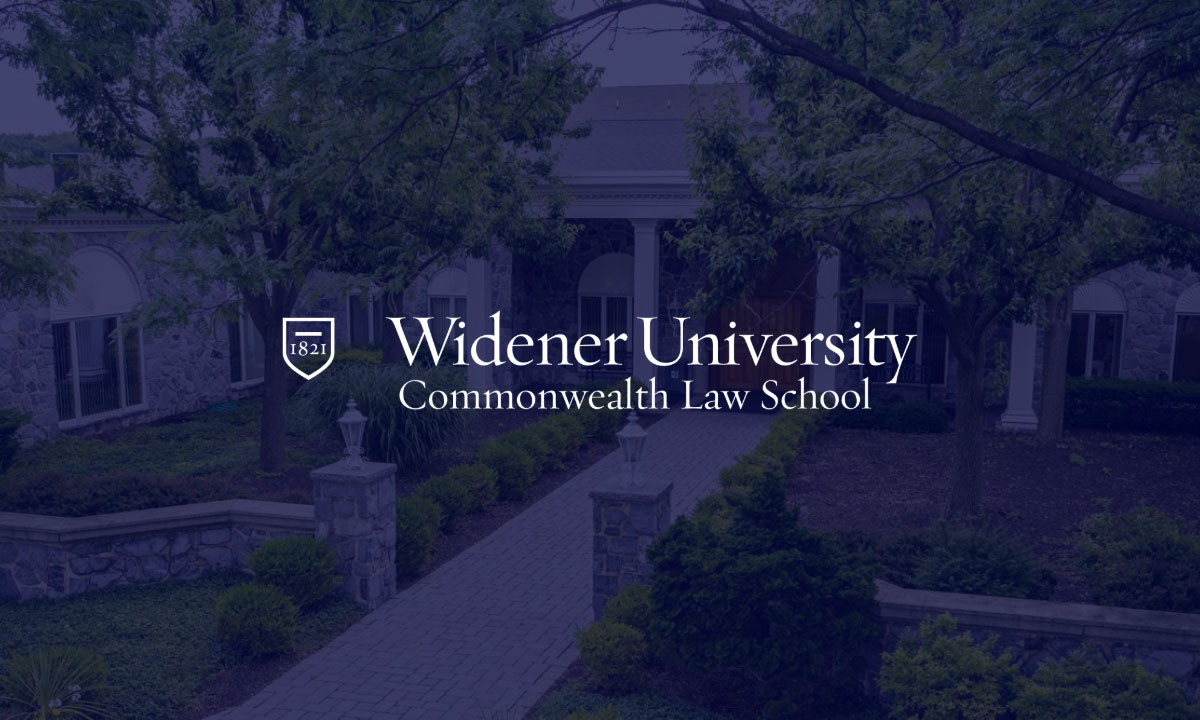
Pathway to Success: Widener Law Commonwealth launches free LSAT preparation program for aspiring lawyers
Widener University Commonwealth Law School, known for its dedication to equity and access, is launching a transformative initiative to help students enter the legal profession. The Pathway Program, starting this fall, offers a 12-week Law School Admissions Test, or LSAT, preparation course aimed at students from underrepresented backgrounds.
Dean andré douglas pond cummings, who originally created the program at the William H. Bowen School of Law at the University of Arkansas at Little Rock, who will partner with Widener Law Commonwealth in this program launch, explained the importance of the initiative: “We’re continuing in Harrisburg what we started at Arkansas. This program is about breaking down barriers that have historically prevented talented, underrepresented students from entering the legal profession.”
The Pathway Program, supported by a $40,000 grant from the Law School Admission Council, offers free online LSAT instruction to 40 students—20 from Arkansas and 20 from Pennsylvania. Participants will receive expert guidance on critical areas of the LSAT, including logical reasoning and reading comprehension with the goal of improving test scores.
cummings emphasized the significance of score improvements, noting, “Eight points on the LSAT can mean the difference between getting into law school or not. It can also mean full scholarships versus paying out of pocket. It’s a trajectory-changing program.”
The program goes beyond LSAT preparation by fostering a sense of belonging in the legal community. In addition to online classes, participants will engage in immersive in-person experiences, including visits to law school classes and a "Day at the Law School" event at Widener Law Commonwealth. Students will attend mock classes, meet with deans and admissions committee members, and interact with professors to gain a deeper understanding of the legal field.
Participants will also receive inside information on crafting a competitive law school application, thanks to support from Widener Law Commonwealth's Admissions Office. Matthew Kerns, associate dean of admissions, highlighted the program’s unique approach: “Participants not only improve their LSAT scores but also experience life as a law student. This inside look helps them better understand the legal profession and the challenges they’ll face in law school.”
Kerns further emphasized the program’s goal of breaking down barriers for promising students. “We’re selecting applicants who show great potential in the legal profession but have struggled with standardized testing as a barrier to entry. By providing resources, including our admissions resource guides and creating a competitive application webinar series, we’re preparing them to succeed not just in the admissions process, but throughout law school,” he added.
The Pathway Program is part of Widener Law Commonwealth’s broader mission to increase diversity within the legal profession. The school’s existing Trial Admissions Program, which allows students with lower LSAT scores or grade point averages to prove their potential through a rigorous six-week curriculum, has already demonstrated the school’s commitment to expanding access. The Pathway Program further extends this effort by addressing systemic barriers that historically marginalized students face in the admissions process.
For the students involved, the stakes are high. But with significant LSAT score improvements and the support of Widener Law Commonwealth’s resources, the program is proving to be a game-changer. As Kerns noted, “Long-term success will be measured by the number of participants accepted to law school and entering the legal profession. Our ultimate goal is to see these students having rewarding careers that improve not only their lives, but also the lives of those in their communities.”
Interested candidates can express interest in the Pathway Program through Widener Law Commonwealth’s admissions office. The program began September 23, 2024.
